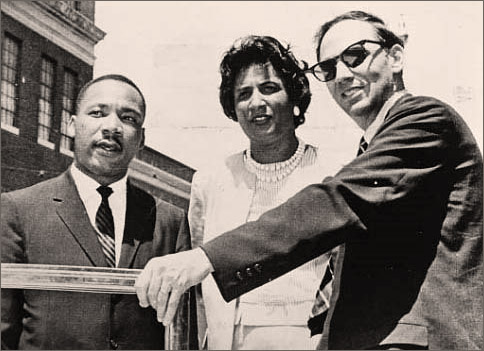Constance Baker Motley and the conservative presumption that all non-reactionary people of color are unqualified to be Article III judges

Dahila Lithwick and Mark Joseph Stern’s piece about the racist mobilization against Joe Biden’s Supreme Court nominee — which has conveniently happened before there’s even a nominee, to take any plausible deniability away — is, as you would expect, outstanding. But this history lesson is particularly useful:
Some background that is too often left out of these discussions: Women of color were locked out of the judiciary for most of American history. The first Black woman to serve on a federal court, Constance Baker Motley, was not appointed until 1966. Motley had a sterling track record of accomplishments: She argued before the Supreme Court on 10 occasions and won nine times, assisted Thurgood Marshall in litigating Brown v. Board of Education, and tried myriad cases in lower courts, including several in New York.* But as Harvard law professor and legal historian Tomiko Brown-Nagin has recently documented, the American Bar Association hesitated to approve Motley. Why? The white men who ran the ABA doubted whether she was sufficiently qualified. They ultimately gave her a lukewarm rating of “qualified” rather than “well qualified,” even though she was one of the most successful and experienced litigators of her era—an advocate so committed that she risked her life to defend her Black clients in the Jim Crow South.
Reading Brown-Nagin’s fantastic new biography of Motley today can induce a queasy sense of déjà vu. Her nomination was indisputably part of President Lyndon Johnson’s nascent effort to diversify the judiciary; she was chosen both because she was a Black woman and because she was a brilliant lawyer. (Attempts to bring genuine diversity to the federal courts did not truly take off until President Jimmy Carter’s quiet revolution.) Johnson, for all his flaws, understood that women, racial minorities, and especially women of color faced debilitating bigotry at every level that kept them out of the upper tiers of the legal profession. To remedy centuries of discrimination, he thus made a concerted effort to increase their representation on the bench. And then, as now, critics insisted that Johnson chose Motley solely on the basis of her identity rather than her professional accomplishments.
Same as it ever was. Meanwhile, Irin Carmon has a barf-inducing reminder that the most useless know-nothing white male mirror-foggers in American media were all convinced that Sonia Sotomayor was not possibly smart enough to serve on the Supreme Court:
If you have deja vu before we even have a nominee… years later, some of Justice Sotomayor's critics during the confirmation hearing apologized to her. Not all! Some of them are still at it. https://t.co/GxacN2QvIB pic.twitter.com/wHSOThxidI— Irin Carmon (@irin) January 27, 2022
And, of course, the really dark irony here is the wingnut legal-industrial complex appointing itself the Guardian of the Intellectual Standards of the Supreme Court the same month its Supreme Court condemned thousands of people to death with an unsigned opinion whose intellectual heft would not be materially lessened if it was replaced with “Let’s Go Brandon” written in crayon.


